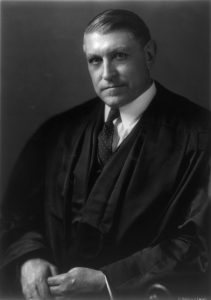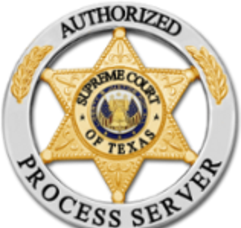 ROBERTS, J., Dissenting Opinion
ROBERTS, J., Dissenting Opinion
JUSTICE ROBERTS.
I dissent, because I think the indisputable facts exhibit a clear violation of Constitutional rights.

 ROBERTS, J., Dissenting Opinion
ROBERTS, J., Dissenting Opinion
JUSTICE ROBERTS.
I dissent, because I think the indisputable facts exhibit a clear violation of Constitutional rights.
 All of this considered, as a practical matter an attorney should get a release from the client and obtain certified admissible paper records of all such witnesses in the ongoing fight. Agencies can be very courteous in getting you these documents as they know it helps them stay out of Court and live testimony. Sometimes there are even strategic reasons that the records are better than a live witness. If a Court rules that a witness is unavailable for a state subpoena, the evidence can come in as government records, business records, and other possible hearsay exceptions.
All of this considered, as a practical matter an attorney should get a release from the client and obtain certified admissible paper records of all such witnesses in the ongoing fight. Agencies can be very courteous in getting you these documents as they know it helps them stay out of Court and live testimony. Sometimes there are even strategic reasons that the records are better than a live witness. If a Court rules that a witness is unavailable for a state subpoena, the evidence can come in as government records, business records, and other possible hearsay exceptions.
However, Touhy and its progeny cut against the fundamental right of criminal defendants to compel the attendance of all witnesses necessary for their defense. We as criminal practitioners should continue to litigate and attack the Touhy doctrine and get courts to narrowly define it according to its original holding.

As noted by the United States District Court Southern District of Mississippi:
… Touhy’s rationale was undermined by a decision rendered by the Supreme Court two years later, in which it considered a claim of governmental privilege and noted, “Judicial control over the evidence in a case cannot be abdicated to the caprice of executive officers.” United States v. Reynolds, 345 U.S. 1, 9-10 (1953). Touhy’s holding was further weakened by a 1958 amendment to the Housekeeping Statute, which added the language, “This section does not authorize withholding information from the public or limiting the availability of records to the public.” Blanks v. Lockheed Martin Corp., 2006 WL 1892512 (S. D. Miss. 2006).
A defendant generally has a Sixth Amendment right to compel and present a material witness’s live testimony. As the Supreme Court stated in Washington v. Texas:
 In Forgione v. HCA, Inc. 954 F.Supp.2d 1349 (N. D. Florida 2013), the Government made an unfounded argument that state employees and agents could also be Federal employees for purposes of 28 U.S.C. section 1442. The Court for purposes of the question at bar stated:
In Forgione v. HCA, Inc. 954 F.Supp.2d 1349 (N. D. Florida 2013), the Government made an unfounded argument that state employees and agents could also be Federal employees for purposes of 28 U.S.C. section 1442. The Court for purposes of the question at bar stated:
Right to control is the classic factor in determining who is an employee when that question is in doubt. See, e.g., Langfitt v. Fed. Marine Terminals, Inc., 647 F.3d 1116, 1121 (11th Cir.2011) (“The essence of the common law’s test for whether an agent is an employee or an independent contractor is the control of details; that is, whether the principal has the right to control the manner and means by which the agent accomplishes the work.”); see also, e.g., N.L.R.B. v. Steinberg, 182 F.2d 850, 857 (5th Cir.1950)
The statute at play is the housekeeping statute at 5 U.S.C. section 301:
 You may be reading this because you received a Touhy letter from the Department of Veterans Affairs, Social Security or another federal agency that does not want to comply with your state-court subpoena. They are citing the Supreme Court’s Decision in Touhy, where the Court stated that the Federal housekeeping statute prohibited an FBI agent from being compelled by subpoena and contempt into bringing in his testimony and agency documents to testify regarding a state inmate’s claims. See Touhy v. Ragen, 340 U.S. 462.
You may be reading this because you received a Touhy letter from the Department of Veterans Affairs, Social Security or another federal agency that does not want to comply with your state-court subpoena. They are citing the Supreme Court’s Decision in Touhy, where the Court stated that the Federal housekeeping statute prohibited an FBI agent from being compelled by subpoena and contempt into bringing in his testimony and agency documents to testify regarding a state inmate’s claims. See Touhy v. Ragen, 340 U.S. 462.
There are several ways to both attack this request while and attempt to get your witness in Court. First and foremost, you should write a letter to the head of the agency requesting the witness, and they can consent to his appearance. Next, get a copy of the agency’s regulations to see if the witness meets the definition of “employee” under the regulations and the Housekeeping Statute. If all else fails, you will most likely end up in a United States District Court to review how Touhy applies to your particular fact situation. Remember that Touhy involved a full-time FBI agent and his records of investigation. The further we get from that, the more likely the witness should be amenable to a state-court subpoena.

Finally, misprision of a felony may apply in this case (or non case, as we are now being told). Misprision of a felony is often used as a “lesser” crime in federal prosecutions, as it carries a lower punishment range than the underlying felony. A drug conspiracy being pled to a misprision is normally a good win for the defendant. 18 USC section 4, misprision of a felony, states: “Whoever, having knowledge of the actual commission of a felony cognizable by a court of the United States, conceals and does not as soon as possible make known the same to some judge or other person in civil or military authority under the United States, shall be fined under this title or imprisoned not more than three years, or both.” The misprision statute requires actual knowledge of a commission of a felony, which can be proven by circumstantial or direct evidence. Also, not reporting the violation as well as concealing the violation must be proven.
Again, most of these prosecutions which do not involve actual espionage appear to end in a misdemeanor plea and a small punishment at the worst, not prison. However, many careers are ruined by it and the political opponents of Hillary Clinton certainly want her career stopped in its tracks. However, due to the circumstances of the case, it appears that it will not be prosecuted at all.
 From the “facts” as disseminated in the media, there are also problems with the apparent destruction of records on the Clinton side. Following the Enron Collapse and the Arthur Anderson scandal, Congress passed the Sarbanes Oxley bill which overhauled accounting and recordkeeping at financial institutions. In that law there was also a new obstruction of justice law that created an easier statute to prosecute than most of the old obstruction of justice statutes, as it did not contain a “willful” requirement. 18 USC section 1519, destruction, alteration or falsification of records in federal investigations and bankruptcy, states that “Whoever knowingly alters, destroys, mutilates, conceals, covers up, falsifies, or makes a false entry in any record, document, or tangible object with the intent to impede, obstruct, or influence the investigation or proper administration of any matter within the jurisdiction of any department or agency of the United States or any case filed under title 11, or in relation to or contemplation of any such matter or case, shall be fined under this title, imprisoned not more than 20 years, or both.” Thus, if there were emails and chains of emails destroyed in the investigation without explanation, a prosecutor could likely obtain an indictment on the conduct from all persons who have probable cause to have destroyed or ordered the destruction of the emails with the intent to keep them from availability in an investigation. Also, the case law requires that the emails actually be destroyed and not just moved from one folder to another.
From the “facts” as disseminated in the media, there are also problems with the apparent destruction of records on the Clinton side. Following the Enron Collapse and the Arthur Anderson scandal, Congress passed the Sarbanes Oxley bill which overhauled accounting and recordkeeping at financial institutions. In that law there was also a new obstruction of justice law that created an easier statute to prosecute than most of the old obstruction of justice statutes, as it did not contain a “willful” requirement. 18 USC section 1519, destruction, alteration or falsification of records in federal investigations and bankruptcy, states that “Whoever knowingly alters, destroys, mutilates, conceals, covers up, falsifies, or makes a false entry in any record, document, or tangible object with the intent to impede, obstruct, or influence the investigation or proper administration of any matter within the jurisdiction of any department or agency of the United States or any case filed under title 11, or in relation to or contemplation of any such matter or case, shall be fined under this title, imprisoned not more than 20 years, or both.” Thus, if there were emails and chains of emails destroyed in the investigation without explanation, a prosecutor could likely obtain an indictment on the conduct from all persons who have probable cause to have destroyed or ordered the destruction of the emails with the intent to keep them from availability in an investigation. Also, the case law requires that the emails actually be destroyed and not just moved from one folder to another.
However, section 793 has a lower mental state. 18 USC section 793(f) states: “Whoever, being entrusted with or having lawful possession or control of any document, writing, code book, signal book, sketch, photograph, photographic negative, blueprint, plan, map, model, instrument, appliance, note, or information, relating to the national defense, (1) through gross negligence permits the same to be removed from its proper place of custody or delivered to anyone in violation of his trust, or to be lost, stolen, abstracted, or destroyed, or (2) having knowledge that the same has been illegally removed from its proper place of custody or delivered to anyone in violation of its trust, or lost, or stolen, abstracted, or destroyed, and fails to make prompt report of such loss, theft, abstraction, or destruction to his superior officer— Shall be fined under this title or imprisoned not more than ten years, or both.” This statute only requires “gross negligence,” and (for what it’s worth) the FBI director pretty much stated that he believed this mental state existed during the conduct at question. Gross negligence requires an extreme breach of the standard of care that a reasonable person would exercise under the same circumstances. This would be an easier statute to prosecute than 798 because of the much lower mental state requirement, although prosecuting a Democratic celebrity for a national security technical crime in Washington, DC would be difficult under any circumstances. But, prosecutors regularly use such indictments to attempt to squeeze misdemeanor pleas out of high profile persons.

While this type of conduct is not necessarily the Lindbergh baby kidnapping or the OJ Simpson murders, people have had their careers ruined and regularly faced at least misdemeanor prosecution for these types of violations. The Hillary Clinton email articles which I have read have focused on two federal statutes regarding mishandling of classified information. There are two statutes that are normally in play regarding the actual classified information, and which are most commonly used in similar national security breach/leak prosecutions.
 18 USC section 798 states: “(a) Whoever knowingly and willfully communicates, furnishes, transmits, or otherwise makes available to an unauthorized person, or publishes, or uses in any manner prejudicial to the safety or interest of the United States or for the benefit of any foreign government to the detriment of the United States any classified information— (1) concerning the nature, preparation, or use of any code, cipher, or cryptographic system of the United States or any foreign government; or (2) concerning the design, construction, use, maintenance, or repair of any device, apparatus, or appliance used or prepared or planned for use by the United States or any foreign government for cryptographic or communication intelligence purposes; or (3) concerning the communication intelligence activities of the United States or any foreign government; or (4) obtained by the processes of communication intelligence from the communications of any foreign government, knowing the same to have been obtained by such processes— Shall be fined under this title or imprisoned not more than ten years, or both.” Here, the unsecured server made classified information available to anyone with access to the server and also hackers. The details have not been brought forward on how many people had such access, but it is common sense that at least the host of the server had unauthorized access. The details of the emails are also sketchy (and will not be detailed due to national security), but it is likely that the emails contained at least the type of information found in (3) and (4) of the statute. However, the statute not only requires this crime to be committed “knowingly,” but also “willfully,” which requires that a person know they are violating the law and intend to violate the law in doing the conduct. It is targeted for intentional espionage cases.
18 USC section 798 states: “(a) Whoever knowingly and willfully communicates, furnishes, transmits, or otherwise makes available to an unauthorized person, or publishes, or uses in any manner prejudicial to the safety or interest of the United States or for the benefit of any foreign government to the detriment of the United States any classified information— (1) concerning the nature, preparation, or use of any code, cipher, or cryptographic system of the United States or any foreign government; or (2) concerning the design, construction, use, maintenance, or repair of any device, apparatus, or appliance used or prepared or planned for use by the United States or any foreign government for cryptographic or communication intelligence purposes; or (3) concerning the communication intelligence activities of the United States or any foreign government; or (4) obtained by the processes of communication intelligence from the communications of any foreign government, knowing the same to have been obtained by such processes— Shall be fined under this title or imprisoned not more than ten years, or both.” Here, the unsecured server made classified information available to anyone with access to the server and also hackers. The details have not been brought forward on how many people had such access, but it is common sense that at least the host of the server had unauthorized access. The details of the emails are also sketchy (and will not be detailed due to national security), but it is likely that the emails contained at least the type of information found in (3) and (4) of the statute. However, the statute not only requires this crime to be committed “knowingly,” but also “willfully,” which requires that a person know they are violating the law and intend to violate the law in doing the conduct. It is targeted for intentional espionage cases.

As the information in the public goes, Hillary Clinton maintained her State Department emails and conducted State Department business on a private, nonsecure server. She then wiped (or had her people wipe) at least part of the server, including many emails, before handing them over for investigation. Many people want her prosecuted for mishandling classified information, but from the facts as provided by the media (reliable or not) there are several federal statutes that could be involved, including other felonies. This article does not express judgment on Ms. Clinton’s guilt, but attempts to correct or expand on previous articles and information disseminated in the media.
Many people have been prosecuted for similar acts which Hillary Clinton might have committed. We all know about Iraq War Hero General David Petraeus being prosecuted for allowing his mistress access to classified information. But, less famous people have been recently prosecuted for similar conduct. Bryan Nishimura of the Naval Reserve was placed on two years of probation for downloading classified material to a personal electronic device, without any intent to distribute it. Chief Petty Officer Lyle White pled to a 60-day sentence for downloading classified material to a nonsecure device. The Blaze has a good article at http://www.theblaze.com/stories/2015/08/14/if-hillary-clinton-mishandled-classified-information-heres-what-it-could-mean/.